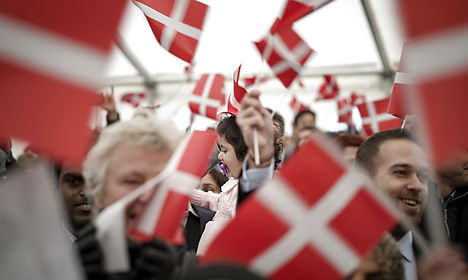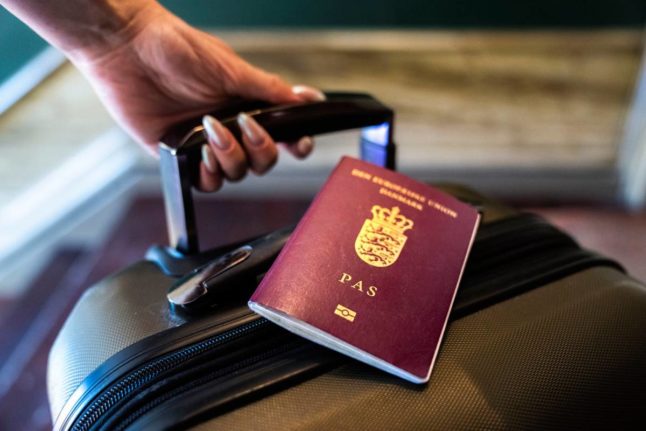DANISH CITIZENSHIP
Denmark celebrates its newest citizens
Denmark honoured its newest citizens on Sunday at the annual ‘citizenship day’ at Christiansborg.
Published: 18 April 2016 08:45 CEST

Sunday's 'Citizenship Day' celebration included plenty of flag-waving. Photo: Jens Astrup/Scanpix
Some 2,200 people who received citizenship in 2015 were invited to the celebration. The Danes were treated to entertainment, speeches and of course a lot of flag-waving.
See a photo gallery from Sunday’s citizenship day here.
The speaker of parliament, Pia Kjærsgaard of the Danish People’s Party, welcome the new citizens and encouraged them to become active participants in their new homeland.
“When one receives a gift like Danish citizenship, I think that one should also note that there are some expectations – that one openly embraces democracy and does one’s utmost to make a postivie contribution to Danish society,” she told reporters after Sunday’s ceremony.
See a photo gallery from Sunday’s citizenship day here.
Url copied to clipboard!


 Please whitelist us to continue reading.
Please whitelist us to continue reading.
Member comments